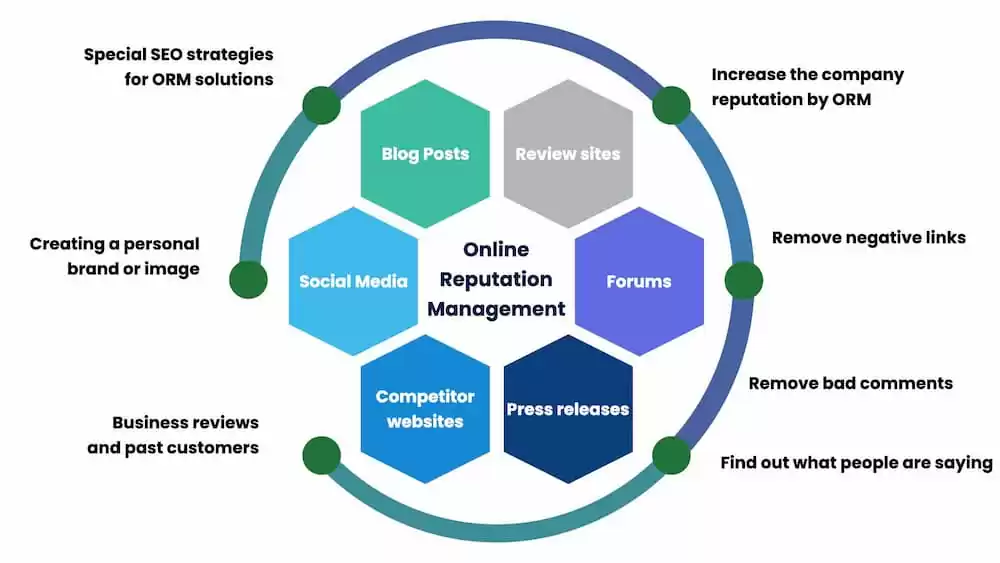Reputation Management SEO Strategies: A Beginner’s Guide to Maintaining a Positive Online Presence
Building a positive online reputation can be challenging when you’re faced with tons of competition. If you want to make sure that your company has an edge over its competitors, try implementing Reputation Management SEO into your strategy. This easy-to-follow guide explains how to use this system in order to achieve your goals and maintain a positive presence on the Internet!
Table of Contents
What Is Reputation Management?
It can be hard for online business owners to maintain a positive image online, as there are numerous websites and search engines that can leave your business with poor reviews. In fact, 76% of customers will read online reviews before making their final purchasing decision. So why is reputation management so important?
According to Bright Local’s Reputation Survey 2017, 53% of businesses closed because they had bad reputations, while 52% of consumers stated they would only buy from local businesses with positive reputations. To stay competitive in today’s market and ensure your customers trust you enough to make purchases on your website or mobile app, it’s important that you do everything you can to protect your reputation through reputation management services like Internet Reputation Management (IRM).
Why Is Good Online Reputation Important?
If you’re reading this, chances are that you’ve found yourself trying to defend your reputation. Maybe you’ve been falsely accused of something and want an opportunity to share your side of things. Perhaps your business is not being portrayed in the best possible light on search engines and social media platforms, leaving people with a negative impression of you or your company.
Either way, most people will agree that having a good online reputation is important for one reason or another. If you’re starting from scratch in building up a positive online presence for yourself or your business, it can seem like there are too many steps to take without knowing where exactly to start—there are thousands of SEO tactics and PR strategies out there, but how do you know which ones matter?
How Does Google Work?
Google’s search engine uses an algorithm that factors in hundreds of variables, including how often other websites link to your site. More incoming links mean more credibility and authority, which means you rank higher in Google’s search results.
This is what makes Google such a powerful tool. Your business or product can appear at the top of page one of Google with very little effort on your part because other people are talking about you and linking back to your website. The trick is learning how to get other people—who aren’t related or affiliated with you—to talk about you. That’s where reputation management comes in.
What Should Be Done When Bad Search Results Appear in Search Engines?
When bad search results appear in search engines, it is important to take care of reputation management as soon as possible. Depending on what kinds of reputation issues people have experienced in different industries and with specific companies, they may not want negative information to show up when their name is searched.
Others may want negative news or content to stay available but in its proper context. Whatever reputation issues need addressing and whatever solutions are decided upon, it is necessary that you handle everything appropriately so that no harm comes to your business or personal reputations and others will feel comfortable doing business with you. The rest of this guide explains what steps should be taken when bad search results appear in search engines.
SEO Practices That Affect a Website’s Reputation
Search Engine Optimization can be achieved in several ways, such as through on-page search engine optimization and off-page search engine optimization. On-page optimization is comprised of adjusting text, headers, images and other website components in order to target keywords that are likely to produce desired results. While on-page optimization is extremely important, especially when it comes to reputation management SEO, it’s just one small piece of a much larger puzzle. Off-page strategies play an equally significant role in creating positive online experiences.
Off-page searches occur when web surfers look for information by visiting sites other than your own; as such, off-site efforts can be used to direct traffic toward your site or alternatively redirected away from your site towards competitors’ sites. It is therefore vital to keep track of what others say about you online.
If you do not have control over what others say about you, then it will be impossible to ensure that they are saying good things about you. In addition, if negative content about your business does exist online, there may be steps you can take to remove it from search engines entirely.
For example, Google offers a process called removal requests which allows those who feel their content has been unfairly removed due to copyright issues or inaccurate reporting to submit their request directly with Google so that their content may once again appear in search results.







